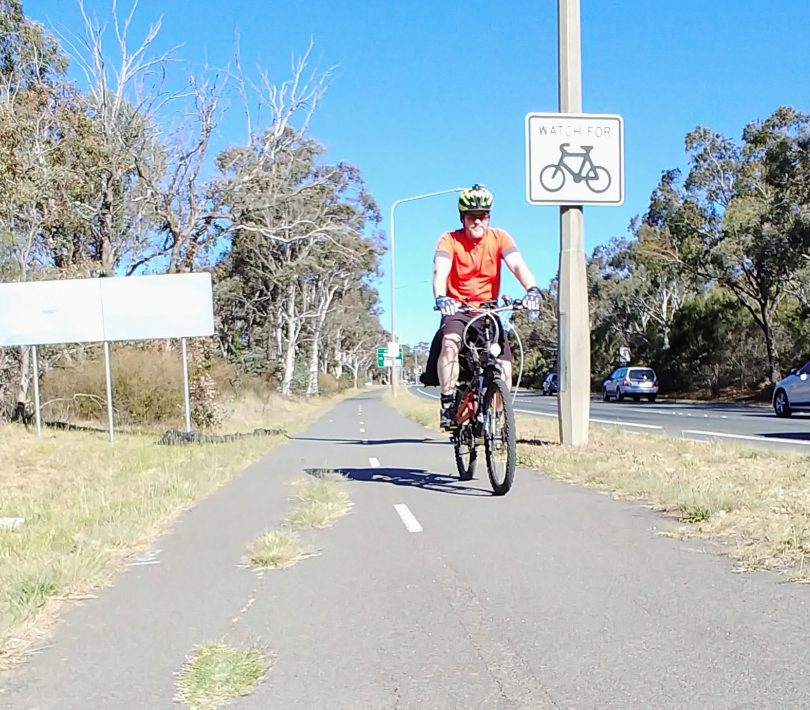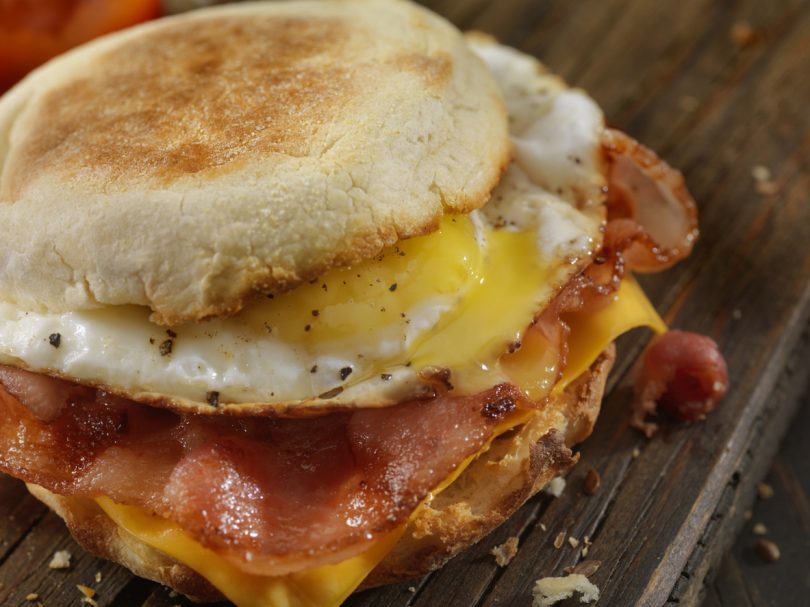
Pedal power is lobbying for an upgrade to cycle paths. But will you be using them? Photo: Pedal Power.
New Year, new you, right?
Yes, it’s that time year again when we promise that our future selves will be better than the selves that brought us here. But New Year’s resolutions are tough. That’s what makes them worthwhile. So you might need some help to find and keep your new you.
Whether it’s stopping smoking, drinking less, exercising more or eating better (or all of the above), it’s best to be prepared. So here’s some help to make the 2020 you better than yesterday’s you.
Smoking
Still? In 2020? You know it’s bad for you, right?
Health is the best reason to quit because, you know, it’s bad for you. But if you need another incentive, just think of the money. You could stop smoking and buy a Porsche. Probably.
But as cigarettes are designed to hook you, don’t face the beast alone. If you plan to stop smoking, Quit recommends:
- Call the Quitline on 13 QUIT (7848). They can get in contact with you every few weeks to see how you’re going and help keep you on track.
- Cut yourself some slack: don’t feel bad using help like nicotine gum or a nicotine replacement.
- Try some breathing exercises to reduce anxiety.
- Distract yourself with an activity other than smoking. If you’re used to getting out of the office every hour, try going for a quick walk instead (but avoid walking past smokers if you can), which brings us to …
- Change your habits. One reason smoking has declined in recent years is that there are so few places you can smoke. So if you start your day at home with a cigarette and a coffee, ditch the homebrew and have one in a cafe where you can’t smoke (and without the smokes $5 for a coffee is spare change).
- Exercise! Take a walk. As a bonus, exercise is easier when you can breathe!
Alcohol
‘Tis the season to be jolly but it might also be the time to rethink how much you really enjoyed your last big night out.
But not so fast. If alcohol is a large or constant part of your life, the Department of Health recommends you speak to your doctor before you quit drinking. Your GP can also help with a plan to reduce or quit drinking altogether.
The Health Department also recommends that you think about:
- Goals — why do you want to reduce or quit alcohol?
- Triggers — why and when do you drink?
- Strategies — how will you reduce or quit alcohol?
- Support — who will you turn to for help?
If you want to change your relationship with alcohol, HelloSundayMorning is a free online program – including an app – that can help make the process easier.
Food
Smoking might be the hardest ‘habit’ to quit but bad eating has to be the most difficult lifestyle change. Most of us can attest to failed diets through bland personal experience. It’s also an easy bad habit to get away with. Drinking to excess and any amount of smoking is frowned upon, but bacon and egg roll is a thing of beauty.

It should be in the NGA. Photo: File.
The modern world also makes bad eating easy. Calories have never been less expensive. Bad food is not only cheap, but it comes straight to your door. This is a major challenge to overcome.
If healthy eating is going to become a way of life, it has to be as easy as bad eating. Whether that means pre-chopping all vegies or preparing meals a week in advance, the easier it is for you to stick to your new eating plan, the more successful you’ll be.
If you want to make a success of better eating:
- Don’t have ‘bad’ food in the house. If you buy it, you’ll eat it (oddly, this doesn’t apply to vegetables).
- Shop in the edges: bad foods are in the aisles. Meat, fruit and veggies are around the perimeter. Stay there and you’ll make healthier choices. And don’t shop when you’re hungry.
- If you feel hungry, drink some water. Your hunger might actually be thirst.
- Take your lunch to work and leave EFTPOS cards at home. If it’s hard to get take away, you probably won’t.
It’s tempting when starting a new eating plan to map out elaborate meals for the week requiring dozens of ingredients. Ditch the fancy! Try batch cooking. A pot of chilli or bolognese cooked on a Sunday can last a week – it takes out the guesswork out and makes it easy to stick with healthy eating.
If you’re going to eat fancy, let someone else do the cooking as a reward at the end of a week of cleaner eating (BTW a $5 pizza is not a reward).

At $5, calories have never been cheaper. Image: Author’s bookmark folder.
Exercise
If you’re new to exercise or are worried about your ability to exercise safely, see your GP. But if you want to start now, get walking. The tried and tested 10,000 steps a day is a good target.
Although 10,000 steps started as an advertising gimmick in Japan, it works. The average person will walk around 5000 incidental steps a day, meaning you’re half-way to 10,000. The Heart Foundation recommends 30 minutes of exercise a day. Guess how many steps the average person knocks out in 30 minutes? Yep – about 5000. Tada! You’re done. Nice. Now aim for 11,000.
If you need extra steps and can’t find a 30-minute block, make yourself walk more by parking further from the supermarket or the office, take the long way to the bus stop and if you have a pooch, there’s no excuse not to walk.
Check out the Heart Foundation for more tips on getting moving.
Now get to it
If you want your resolutions to succeed: Have a plan. Reward success. Be resilient. Be patient.
If you’re changing decades’ of ‘bad’ habits, a good day might be two steps forward and one back … poor days might be three steps back. Think long term. Your future self will thank you. And next year, you’ll have one fewer resolution to choose from.
Good luck!





















